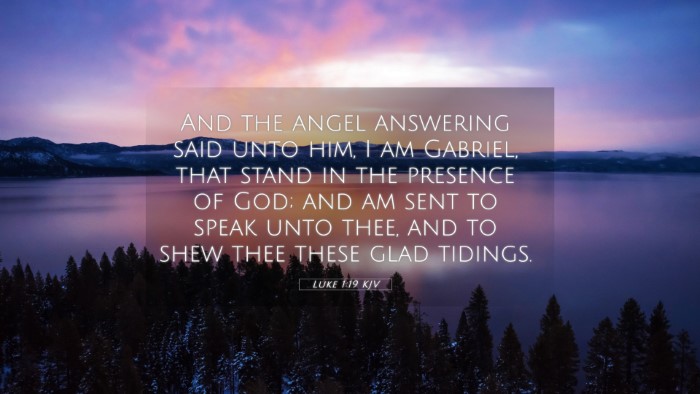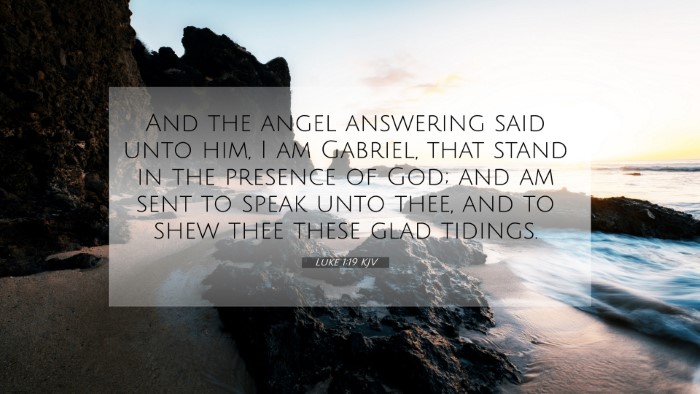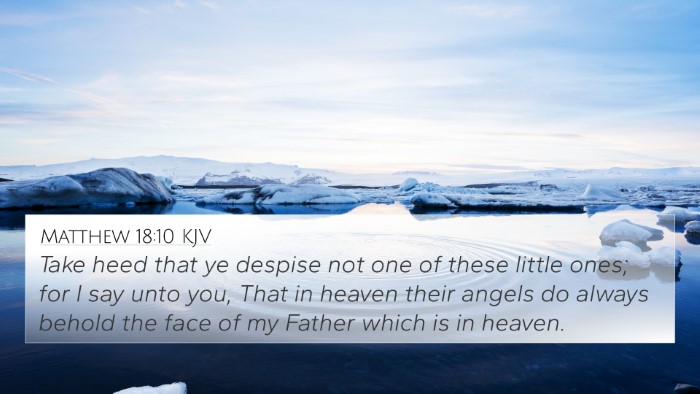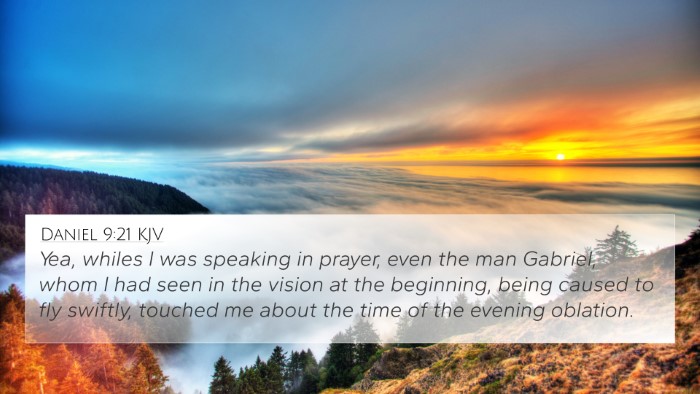Understanding Luke 1:19 - In this verse, the angel Gabriel responds to Zacharias, stating, "I am Gabriel, that stand in the presence of God; and am sent to speak unto thee, and to show thee these glad tidings." This passage holds a wealth of significance, as it encapsulates the divine authority and the miraculous nature of God's messages delivered through angels.
Gabriel’s declaration emphasizes his position as a messenger of God, indicating that what he is about to communicate is of divine origin. This highlights an essential aspect of biblical communication: God employs chosen instruments to convey His will to humanity.
The mention of "glad tidings" points to the joyous announcement of a forthcoming miracle—Zacharias and Elizabeth will bear a son, John the Baptist, who will play a crucial role in the New Testament narrative. This sets a tone of hope and expectation that resonates throughout the scriptures.
Commentary Insights
-
Matthew Henry: Henry notes that Gabriel’s statement underscores not only his authority but also the importance of the message he brings, focusing on God's intention to bring joy and deliverance to His people through Jesus Christ.
-
Albert Barnes: Barnes emphasizes the aspect of divine timing and selection. Zacharias' initial doubt is met with a clear affirmation of divine truth that reinforces the need for faith in God’s promises.
-
Adam Clarke: Clarke expands upon the name "Gabriel," which means "man of God," indicating that angels are not merely celestial beings but are representatives of God’s will and divine plans on Earth.
Cross-References
Luke 1:19 is related to several other scriptures that echo similar themes of divine communication and the prophetic role of angels:
- Daniel 9:21-22 - Gabriel is mentioned as the guardian angel of Israel.
- Isaiah 6:6-7 - An angel’s role in delivering God's message of purification.
- Luke 1:26-28 - Gabriel announces to Mary that she will conceive Jesus, showing his role in key New Testament events.
- Revelation 1:1 - God sends His angels to communicate with prophets, mirroring the message Gabriel brings to Zacharias.
- John 1:6 - The introduction of John the Baptist as a forerunner to Jesus, linking back to the glad tidings in Luke 1:19.
- Matthew 1:20-21 - An angel reassures Joseph about the divine nature of Mary's pregnancy.
- Luke 2:10-11 - The announcement of Jesus' birth as 'good tidings of great joy' by an angel to the shepherds.
- Acts 10:3 - An angel appears to Cornelius, showing how divine message delivery continues in the early Church.
Thematic Connections and Analysis
The themes surrounding Luke 1:19 include divine authority, communication, expectation, and fulfillment of prophecy. This verse illustrates the connection between the Old Testament and New Testament, presenting how God’s plan unfolds through the announcement of significant events leading to the birth of Christ.
This intersection of themes serves as a central tenet for understanding God’s unwavering plan, where each prophetic utterance and angelic message links together the narrative of salvation history.
Tools for Cross-Referencing
To explore the connections between these verses effectively, consider the following tools and methods:
- Bible Concordance: A useful tool for finding where specific words or phrases appear throughout the scriptures.
- Bible Cross-Reference Guide: Guides that provide contextual links between verses that share similar themes or messages.
- Bible Cross-Reference System: Integrates various references into a cohesive study note system.
- Cross-Referencing Bible Study Methods: Strategies for identifying and analyzing interrelated texts, enhancing comprehension.
- Comprehensive Bible Cross-Reference Materials: Extensive resources consolidating cross-referenced verses for deeper insights.
Conclusion
Luke 1:19 serves as a pivotal moment in the biblical narrative that showcases the profound nature of angelic messages and the joy tied to divine promises. By exploring the connections and themes surrounding this verse, we can appreciate the intricate tapestry of God’s Word and His consistent engagement with humanity through prophetic voices.








